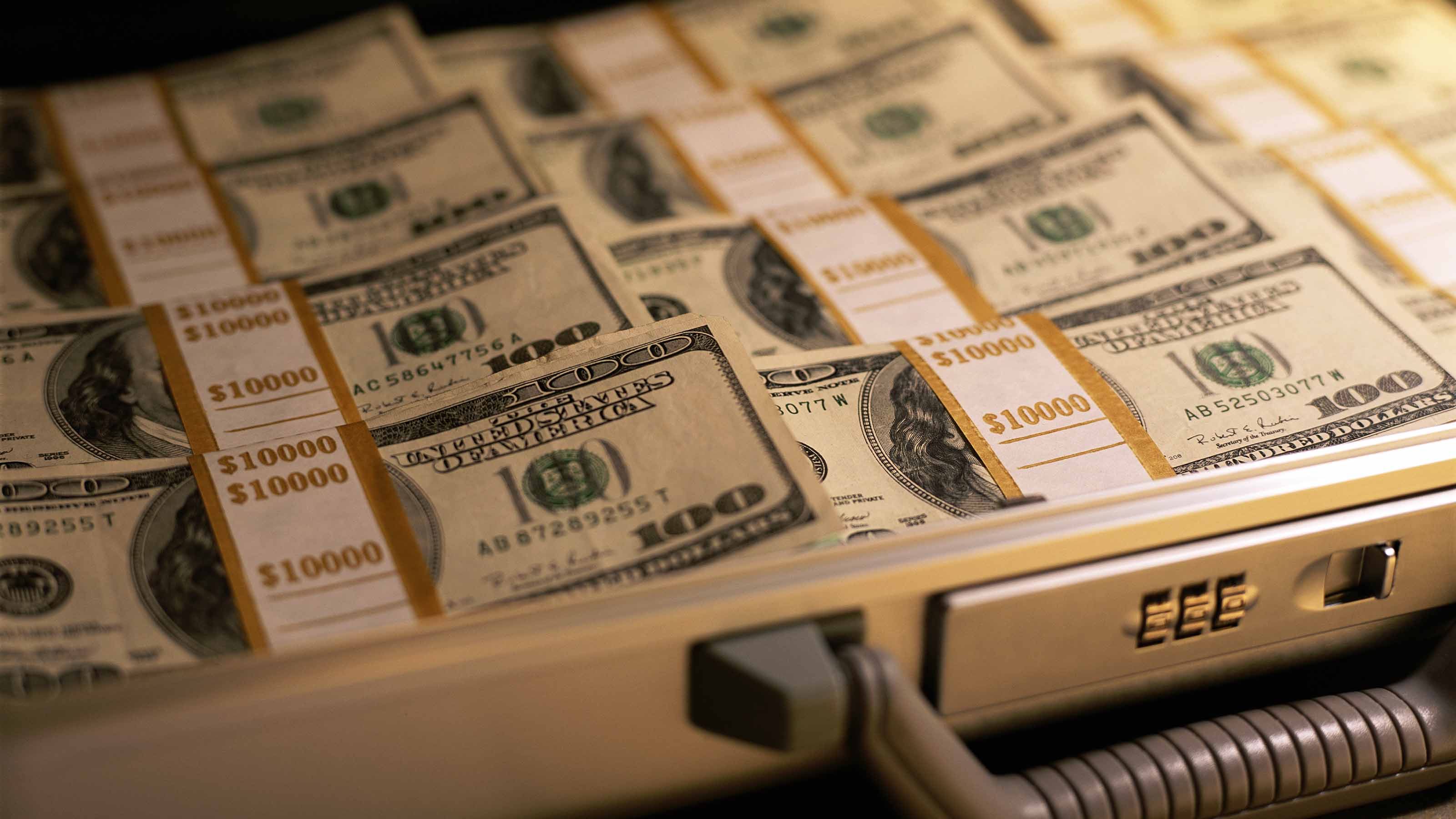
Profit and prosper with the best of Kiplinger's advice on investing, taxes, retirement, personal finance and much more. Delivered daily. Enter your email in the box and click Sign Me Up.
You are now subscribed
Your newsletter sign-up was successful
Want to add more newsletters?

Delivered daily
Kiplinger Today
Profit and prosper with the best of Kiplinger's advice on investing, taxes, retirement, personal finance and much more delivered daily. Smart money moves start here.

Sent five days a week
Kiplinger A Step Ahead
Get practical help to make better financial decisions in your everyday life, from spending to savings on top deals.

Delivered daily
Kiplinger Closing Bell
Get today's biggest financial and investing headlines delivered to your inbox every day the U.S. stock market is open.

Sent twice a week
Kiplinger Adviser Intel
Financial pros across the country share best practices and fresh tactics to preserve and grow your wealth.

Delivered weekly
Kiplinger Tax Tips
Trim your federal and state tax bills with practical tax-planning and tax-cutting strategies.

Sent twice a week
Kiplinger Retirement Tips
Your twice-a-week guide to planning and enjoying a financially secure and richly rewarding retirement

Sent bimonthly.
Kiplinger Adviser Angle
Insights for advisers, wealth managers and other financial professionals.

Sent twice a week
Kiplinger Investing Weekly
Your twice-a-week roundup of promising stocks, funds, companies and industries you should consider, ones you should avoid, and why.

Sent weekly for six weeks
Kiplinger Invest for Retirement
Your step-by-step six-part series on how to invest for retirement, from devising a successful strategy to exactly which investments to choose.
In the 12 months ending June 30, companies in the S&P 500 index spent a record $1 trillion to buy back their own shares, according to S&P Dow Jones Indices. But come January, a new 1% tax on buybacks might dampen corporate America’s appetite. S&P Dow Jones estimates the tax would reduce corporate profits by half a percentage point at current buyback rates.
Buybacks have lately become controversial, with critics arguing that there are better uses for corporate cash. But a 2020 S&P Dow Jones Indices analysis of the 100 companies with the biggest buybacks found that their long-term stock returns generally outpaced the S&P 500.
Many smart investors, including Warren Buffett, are big supporters of strategic buybacks. “If a management wishes to further intensify our ownership by repurchasing shares, we applaud,” he has said.
From just $107.88 $24.99 for Kiplinger Personal Finance
Become a smarter, better informed investor. Subscribe from just $107.88 $24.99, plus get up to 4 Special Issues

Sign up for Kiplinger’s Free Newsletters
Profit and prosper with the best of expert advice on investing, taxes, retirement, personal finance and more - straight to your e-mail.
Profit and prosper with the best of expert advice - straight to your e-mail.
The new tax is low enough that it will discourage only the most marginal buybacks, say experts, so don’t expect them to disappear. But buybacks can be complex to evaluate. For investors trying to navigate this changing market, a few signals can help you find stocks likely to benefit from share repurchases despite the tax. But first, the basics.
The pros. Buybacks make a lot of sense when a company can sweep up shares whose prices have been irrationally driven below true value by market swings. Such purchases signal insiders’ faith in the company and add demand that supports the stock’s price.
Many investors prefer buybacks over dividends because although you must pay taxes on dividends when they are issued, you don’t pay capital gains taxes until you sell your shares. In addition, when companies buy back more shares than they issue, each remaining share represents a bigger ownership slice of the company
Some investors want companies to distribute cash through buybacks so managers aren’t tempted to make worse choices, says Meb Faber, chief investment officer of Cambria Investment Management. “How many companies have wasted money on naming stadiums?”
Executives like buybacks because by reducing the number of shares outstanding, a company can report higher per-share earnings even when overall profits are flat or down. That can be an especially enticing strategy for any executive whose compensation is tied to rising earnings per share.
Buybacks also give managers flexibility. A company that raises its dividend risks a stock meltdown if troubles later force it to cut the payout. A buyback program, however, can usually be suspended without alarming investors. Another advantage: Every share brought home means one less dividend payment for those companies that also pay dividends, reducing future cash obligations.
Finally, economists like buybacks because they take cash from companies that lack good internal investment ideas and return it to shareholders—who then typically reinvest it in other publicly traded companies (which, presumably, have more-productive investment plans).
| Year | Share Buybacks (billions) | Dividends (billions) |
|---|---|---|
| 2022 (through June 30) | $501 | $278 |
| 2021 | 882 | 511 |
| 2020 | 520 | 483 |
| 2019 | 729 | 485 |
| 2018 | 806 | 456 |
The cons. Politicians as disparate as senators Elizabeth Warren (D-Mass.) and Marco Rubio (R-Fla.) have tried to discourage buybacks. The critics hope to nudge companies to invest more in their operations, generating new jobs.
Although some studies highlight the positive aspects of buybacks, others conclude that shareholders often benefit more from alternative uses of cash. Greg Milano, CEO of Fortuna Advisors, an investment consulting firm, says Fortuna found over the past 12 years that, on average, firms that raised earnings per share due to investments in operations generated twice the stock-price gain of companies that raised per-share profits through buybacks. Dividend payouts also led to slightly higher returns than did buybacks.
And Milano warns that despite the hype, many buybacks don’t end up giving investors a bigger share of a company because companies often issue more shares in stock-based compensation plans than they repurchase. Worst of all, investors have been burned by companies that spent billions on buybacks instead of cleaning up their balance sheets or investing in their businesses to protect against downturns—as some airlines did recently, for example. (For more on airlines, see Why Airline Stocks Are a Bad Deal)
How to cash in. Investors who still want to ride the coattails of buyback programs should follow three principles, experts say. The stocks mentioned below provide good examples.
Avoid dilution. Don’t jump at every buyback announcement. Check whether the company’s overall share count is actually decreasing, thereby raising your ownership stake in the company, advises Faber. You can look up a company’s outstanding shares in its Securities and Exchange filings, or you can find its most recent share count on websites such as Yahoo Finance and YCharts. A good example is McKesson (MCK), says Faber, whose investment firm owns the stock. The distributor of drugs and medical supplies has reduced its share count by 7% in the past year, and over the past five years the stock price has doubled.
Look for price discipline. Successful repurchasers, like successful investors, should buy low. Buffett’s Berkshire Hathaway (BRK.B), sitting on more than $100 billion in cash, buys back its own shares when the price falls below what Buffett calls its “intrinsic value.” Morningstar sector strategist Greggory Warren notes that the company has repurchased $58 billion worth of its common stock since 2019, reducing its share count by about 10%. Warren, a Berkshire bull, believes the company is focused on reducing its long-standing cash hoard through a mix of stock purchases and share buybacks.
Bet on healthy firms. Fortuna’s Milano says the companies most likely to have high long-term returns on their buybacks have strong balance sheets and, ideally, are less vulnerable than other firms to economic or commodity cycles. One company high on his list: Apple (AAPL). Since the start of 2021, Apple has bought back more than $200 billion of its stock, reducing its share count by about 5%. In that time, the stock has gained roughly 6%, not including dividends, compared with a loss of 3% for the S&P 500 index. Says Howard Silverblatt, senior index analyst for S&P Dow Jones Indices, “Apple is the poster child for buybacks.”
Profit and prosper with the best of Kiplinger's advice on investing, taxes, retirement, personal finance and much more. Delivered daily. Enter your email in the box and click Sign Me Up.

Kim Clark is a veteran financial journalist who has worked at Fortune, U.S News & World Report and Money magazines. She was part of a team that won a Gerald Loeb award for coverage of elder finances, and she won the Education Writers Association's top magazine investigative prize for exposing insurance agents who used false claims about college financial aid to sell policies. As a Kiplinger Fellow at Ohio State University, she studied delivery of digital news and information. Most recently, she worked as a deputy director of the Education Writers Association, leading the training of higher education journalists around the country. She is also a prize-winning gardener, and in her spare time, picks up litter.
-
 QUIZ: Are You Ready To Retire At 62?
QUIZ: Are You Ready To Retire At 62?Quiz Are you in a good position to retire at 62? Find out with this quick quiz.
-
 Ask the Editor: Questions on Tax Breaks for Caregivers
Ask the Editor: Questions on Tax Breaks for CaregiversAsk the Editor In this week's Ask the Editor Q&A, Joy Taylor answers questions on tax breaks for caregivers
-
 Are You Making These Savings Mistakes?
Are You Making These Savings Mistakes?Avoiding these common mistakes can help you build a foundation of wealth while not leaving thousands of dollars on the table.
-
 Stocks Drop as Iran Worries Ramp Up: Stock Market Today
Stocks Drop as Iran Worries Ramp Up: Stock Market TodayPresident Trump said he will decide within the next 10 days whether or not the U.S. will launch military strikes against Iran.
-
 Nasdaq Leads a Rocky Risk-On Rally: Stock Market Today
Nasdaq Leads a Rocky Risk-On Rally: Stock Market TodayAnother worrying bout of late-session weakness couldn't take down the main equity indexes on Wednesday.
-
 Stocks Make More Big Up and Down Moves: Stock Market Today
Stocks Make More Big Up and Down Moves: Stock Market TodayThe impact of revolutionary technology has replaced world-changing trade policy as the major variable for markets, with mixed results for sectors and stocks.
-
 Small Caps Step Up, Tech Is Still a Drag: Stock Market Today
Small Caps Step Up, Tech Is Still a Drag: Stock Market TodayEarly strength gave way to AI skepticism again as a volatile trading week ended on another mixed note.
-
 AI Unwind Takes 2% Off the Nasdaq: Stock Market Today
AI Unwind Takes 2% Off the Nasdaq: Stock Market TodayMarkets are paying more and more attention to hyperscalers' plans to spend more and more money on artificial intelligence.
-
 Strong Jobs Report Leaves Markets Flat: Stock Market Today
Strong Jobs Report Leaves Markets Flat: Stock Market TodayInvestors, traders and speculators are taking time to weigh the latest labor market data against their hopes for lower interest rates.
-
 Dow Hits New High Ahead of January Jobs Report: Stock Market Today
Dow Hits New High Ahead of January Jobs Report: Stock Market TodayA weak reading on December retail sales was in focus ahead of Wednesday's delayed labor market data.
-
 Tech Stocks Fuel Strong Start to the Week: Stock Market Today
Tech Stocks Fuel Strong Start to the Week: Stock Market TodayThe blue-chip Dow Jones Industrial Average extended its run above 50,000 on Monday and there are plenty of catalysts to keep the 30-stock index climbing.
